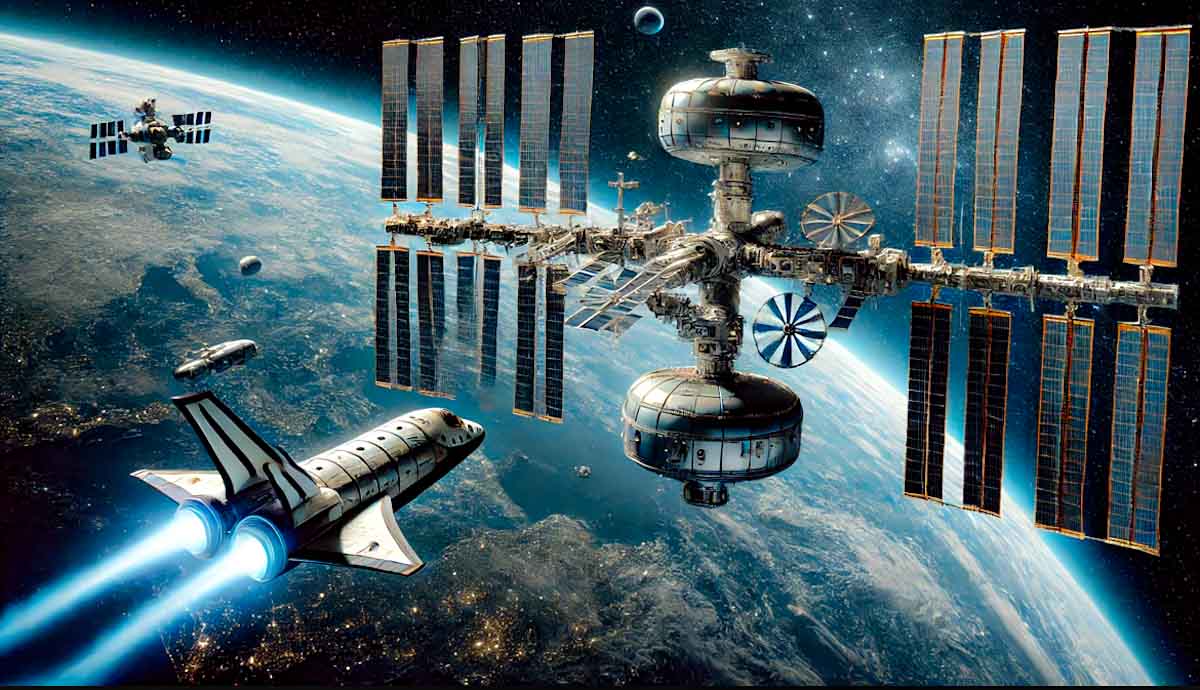In a recent development that has ignited discussions within the aerospace community, SpaceX CEO Elon Musk has called for the early decommissioning of the International Space Station (ISS) by 2026, a significant acceleration from NASA’s planned 2030 timeline.
This proposal has sparked a debate about the future of low Earth orbit (LEO) operations and the strategic direction of human space exploration.
The Catalyst
The controversy began with a public disagreement between Musk and European Space Agency astronaut Andreas Mogensen. Mogensen accused Musk of dishonesty regarding the extended stay of NASA astronauts Suni Williams and Butch Wilmore aboard the ISS.
Musk contended that their prolonged mission was politically motivated, leading to a heated exchange that culminated in Musk advocating for the ISS’s early retirement. He described the station as having “served its purpose” and suggested that maintaining it has become financially burdensome and operationally inefficient.
NASA’s Position
Despite Musk’s assertions, NASA remains committed to its plan of operating the ISS until 2030. The agency emphasizes the station’s ongoing contributions to scientific research, technological development, and international collaboration.
In a statement, NASA reassured that the current astronauts on the ISS are safe and healthy, underscoring the station’s continued relevance.
NASA’s transition strategy involves fostering commercial space stations to take over LEO operations post-ISS. This approach aims to ensure a seamless shift from a government-operated platform to privately managed habitats, thereby stimulating a burgeoning space economy.
Implications of an Accelerated Timeline
Musk’s proposal to decommission the ISS by 2026 carries significant implications:
-
Strategic Vacuum in LEO: Retiring the ISS ahead of schedule could leave China as the sole nation with a fully operational space station in LEO, potentially shifting the balance of power in space exploration.
-
Impact on Research and Partnerships: The ISS serves as a critical platform for scientific experiments and international partnerships. An early retirement could disrupt ongoing research and collaborative projects, affecting advancements in various scientific fields.
-
Commercial Readiness Concerns: While NASA is investing in commercial space stations, there is uncertainty about whether these platforms will be ready to assume the ISS’s role by 2026. An accelerated decommissioning could result in a gap in human spaceflight capabilities.
Financial and Operational Considerations
Musk argues that these funds could be redirected towards more ambitious endeavors, such as crewed missions to Mars.
However, NASA contends that the ISS remains a valuable asset for research and technology development, which are essential for future deep space missions.
The Path Forward: Balancing Vision with Practicality
The debate over the ISS’s retirement highlights the broader challenge of balancing visionary goals with practical considerations. While Musk’s focus on Mars aligns with long-term aspirations for human space exploration, the ISS provides a proven platform for addressing immediate scientific and technological objectives.
As the discussion unfolds, key factors to monitor include:
-
Policy Decisions: The stance of the current U.S. administration and the incoming NASA leadership will significantly influence the ISS’s future. Policy shifts could either support an accelerated decommissioning or reinforce the existing 2030 timeline.
-
Commercial Sector Progress: The readiness of commercial entities to develop and operate LEO habitats will be crucial. Successful deployment of private space stations could facilitate a smoother transition if the ISS is retired early.
-
International Collaboration: The ISS is a symbol of global cooperation in space. Decisions about its future will impact international relationships and collaborative efforts in space exploration.
In conclusion, while Elon Musk’s call for an early ISS retirement has sparked a necessary conversation about the future of human activities in LEO, any decision must carefully weigh the benefits of new exploration initiatives against the invaluable contributions the ISS continues to provide.
A measured approach that considers strategic, scientific, financial, and diplomatic factors will be essential in charting the next phase of space exploration.
